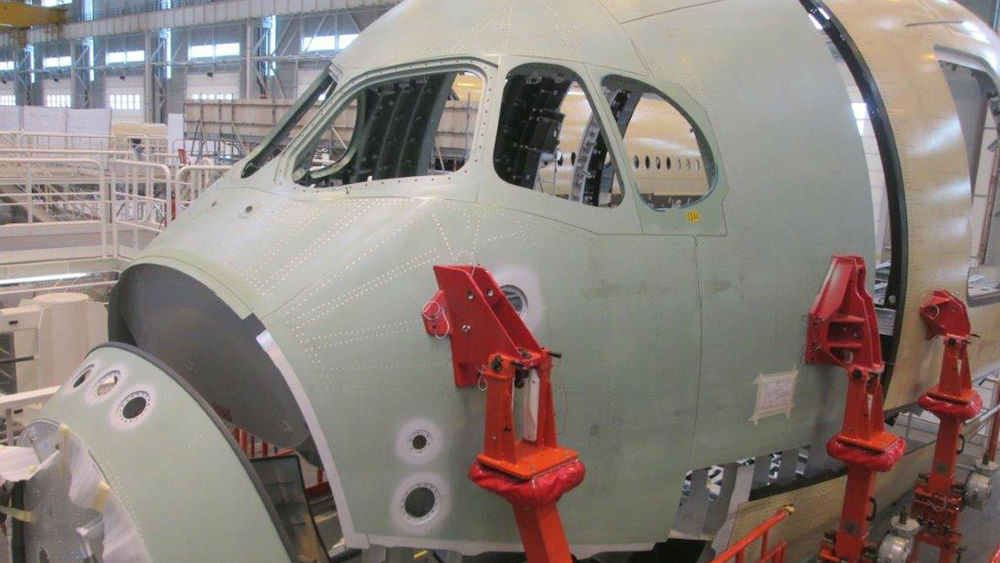Of the 100 top high-tech companies worldwide, only eight are based in Europe. Why are we lagging behind? It’s our risk-averse nature, says Airbus Group CEO TOM ENDERS. Time to make better use of Europe’s biggest asset: diversity.
How big of a problem – or challenge – are “Industrie 4.0” and the digitalization of Europe’s economy compared to, say, the refugee or the euro crisis? I wouldn’t call digitalization a problem or compare it with political issues. For sure, it is a challenge. But overall, it represents a huge opportunity. Over the past ten years or so, industry has witnessed an unprecedented level of technological advancement with the rise of digitalization. New and bold entrants in this field are challenging the status quo more than ever before, and are disrupting established business models. For instance, while it took 75 years for the telephone to reach 100 million users worldwide, it took only seven years for the World Wide Web. For Facebook, along with WhatsApp, one of the latest contenders on the communications market, it took a mere four years to connect the same number of people. We should be grateful to live in such an exciting era of change and opportunities.
Data – one of the key elements in “Industrie 4.0” – is doubling every five years. Yet its potential is still largely untapped. We estimate that less than one percent of the data available to companies is currently being utilized to its full potential. The same applies to data generated by our products. That’s why we are working together with some customers to better monitor aircraft during flight and process the enormous amount of data generated between take-off and landing. Again, I view digital transformation fueled by data growth as a true business opportunity.
You suggested recently that European companies are still in the “trial and error” phase – is this also true for competitors in the US or China? The issue at stake isn’t Europe versus the US or Europe versus China. Airbus, for instance, is a European company, but one with global operations. We have a significant industrial footprint in all three places. The issue is rather that the big industrial firms have to catch up with the “dot coms”. At Airbus, we’re on it, but we’re definitely still in a trial-and-error phase – and I am convinced many other companies are as well. However, the more we delve into digitalization, the faster we’re learning to tackle the steep learning curve. At Airbus, one of the big lessons we’ve learned so far is that speed and methodology matter. We have also seen that in our sector – there’s no “one size fits all” approach. Our philosophy is this: Learning by doing, trying hard and failing fast! We also firmly believe that data generation in itself is not enough to create value. To do so, you must combine data resources, business know-how, and analytical skills.
Do we have an innovation gap in comparison to the US and China, and if so, how can we bridge it? And is there something the others could learn from Europe? Europe’s biggest advantage is its diversity, and Europe’s biggest problem is diversity! Each country is home to many renowned universities and research institutions. They all have different traditions and profiles or cultural footprints. From one European country to another, we can see differences in industrial structures and approaches to collaboration between stakeholders. Our diversity is an excellent stimulus for innovation. Obviously, this in itself is not sufficient to succeed in the digital age if you look at where the growth is happening: Out of the five biggest smartphone manufacturers worldwide, four come from Asia and one comes from the US. Of the 100 top high-tech companies worldwide, 65 are based in the US and only eight in Europe. And, finally, out of the six biggest websites globally, five are from the US and one is from China – but none are from Europe.
So why is Europe lagging behind? In my view, it is our risk-averse nature in Europe. We’re always looking at the safest path to success, but not necessarily the most innovative or best solution. The question driving European decision-making isn’t “how can we change today’s world?” but rather “how can we minimize risks and guarantee an acceptable standard of living for the foreseeable future?” And as long as we don’t change this attitude, we can’t fully benefit from our famous European diversity, and we won’t see the creation of a Google or Facebook made in Europe!
What does digitalization mean for a company like Airbus Group? Clearly, we are trying to capitalize on the opportunities that digitalization offers. In late November 2014, I led a fact-finding delegation to Silicon Valley. A few months later, I brought our entire management board to the Valley. Soon afterwards we decided to set up shop there with an innovation center and a capital venture fund. Both operations are now in full swing: Airbus Ventures has already made investments, and A3, our innovation center, is involved in various initial pilot projects, e.g. with Uber for on-demand air transportation. So, in only one year, we’ve made a lot of progress on the innovation side – not least thanks to our newly established presence in Silicon Valley.
One of the things that make Silicon Valley so special is its quick decision-making. Speed is of the essence. So we are ready to shake ourselves up and change our “way of doing things” before someone else does. In this special ecosystem, we aim to experiment with new products, business models, manufacturing, and other processes. But we’re not limiting ourselves to Silicon Valley. Our innovation center and the Airbus Ventures fund will serve as catalysts for our entire business worldwide. If we believe we have identified attractive business vehicles, we will make investments – be they in Berlin, Paris, Tel Aviv, Tokyo, or Shanghai. Internally, our Silicon Valley initiative has provided fresh impetus, and has been driving a new wave of innovation throughout the Group.
You said your own company has only “proceeded one percent” of the journey – what will the next 24 percent look like? Frankly, I don’t know. But I am convinced that digitalization and the transformation we’re seeing as a result of it will change the way we work. For example: Digitalization will certainly support our production system, especially when it comes to quality control. Our people on the shop floor will no longer be laboring away in isolation, but will instead be connected to the engineering team, with the possibility to make live modifications if necessary and save time. We’ll also be using 3D printers to manufacture much larger aircraft parts than now.
Therefore I’m convinced that in ten years our company will look very different from today. And I’m also convinced that digitalization will change the way we work and organize ourselves in the future. That will be the real revolution! We are experimenting already in several of our factories with new, shop-floor-based organization forms. For me, it’s fascinating to discuss this with the employees involved!
Do we need “European solutions” for handling “big data”? If so, what would those look like? Yes, I absolutely believe we do, and I can give you a very concrete example of what a European approach to handling big data looks like today: Airbus Group is working with academia and IT companies to harness the immense processing power of quantum computers. We’ve established a quantum computing cell at our Airbus Group Innovations site in Newport in the United Kingdom. Newport is one of our centers focused on cybersecurity R&D, and the quantum computing lab is currently in the early stages of development.
In a nutshell, quantum computing speeds up the computing process by using quantum physical phenomena rather than electrical transistors to process calculations. How does this apply to big data? Quantum computers will be able to process enormous amounts of data in a fraction of the time it takes for computers using transistors to do the same work. For some types of problems, to do the same task, it might take all the normal computers in the world working together for longer than the universe has existed. We’re not building a quantum computer ourselves currently. However, we are collaborating with academic and industry partners to define the algorithms necessary to utilize the immense potential of quantum technology.
What needs to be done by the EU and national governments? Which obstacles need to be cleared? Let me tell you what they should not do: They should neither “protect” companies nor push them in a certain direction. We also don’t need something like a “European Google”, funded by the governments in order to create the industrial structures or to define the strategy and the business areas. That’s the opposite of the creative atmosphere necessary for innovation in this sector.
I’m saying this as the boss of a European aerospace and defense giant which has challenged US dominance. However, there’s a big difference: The aerospace and defense business has very high barriers to entry. In the digital business, investment and size are not necessarily the main issues. It’s the entrepreneurial spirit we are lacking and that needs to be nurtured in lecture halls, classrooms, and start-ups.
Does Europe need a cultural shift – a sort of “mental reboot” – to accompany policy changes, and what would it entail? Yes, indeed. In Europe we tend to see threats instead of opportunities in every change. Big data is one example. This is why others reap the benefits of change rather than chase behind it. While we’re sitting idle, our competitors in other regions are coming up with new ideas and solutions to the challenges of the present – and implementing them quickly. For a continent and culture that once drove global innovation, Europe has declined into the 21st century’s “late adopters”. But change will happen anyway, like it or not, so we better accept this fact and seize the new opportunities it creates.
Read more in the Berlin Policy Journal App – January/February 2016 issue.








